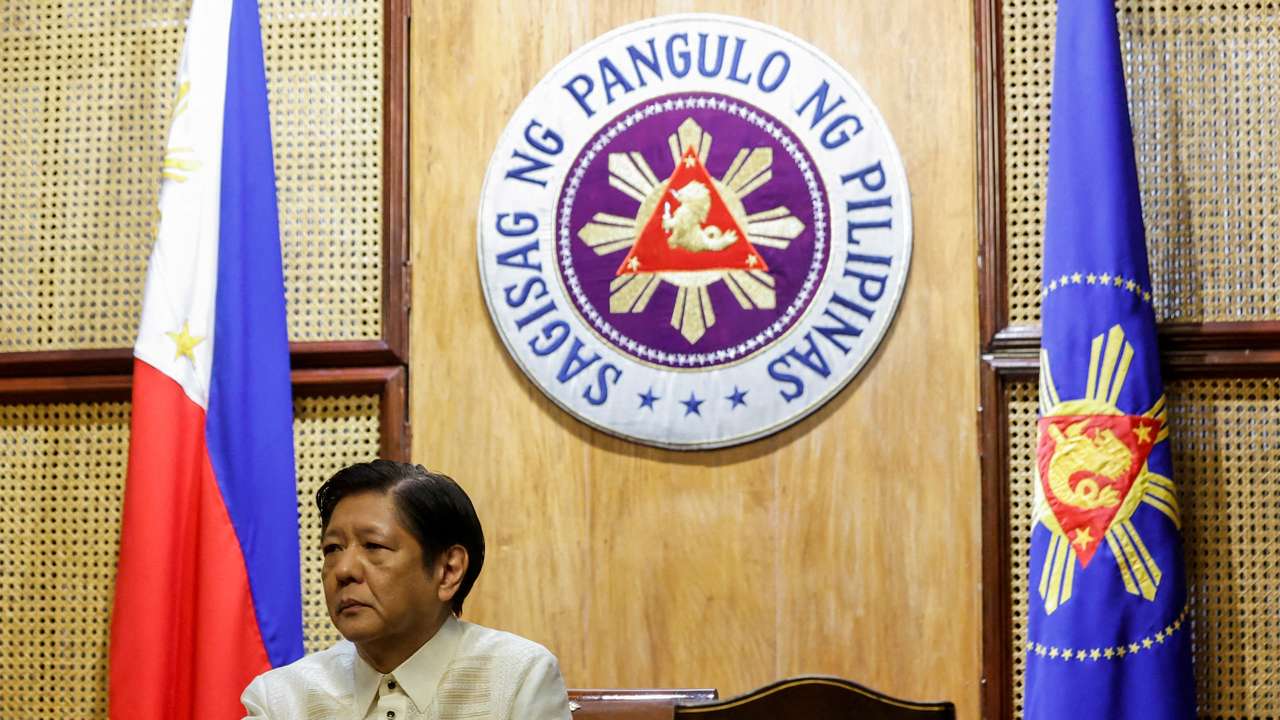Philippines Roundup: 2026 budget, stricter e-gambling rules, judiciary’s fiscal autonomy

Philippines’ 2026 budget heads to Congress
Education and infrastructure will get the lion’s share of the proposed P6.793 trillion national budget for 2026, which the Department of Budget and Management forwarded to the House of Representatives on August 12. Next year’s budget, an increase of 7.4% from the enacted 2025 budget, includes allocations of P928.5 billion for education, P881.3 billion for public works, and P320.5 billion for the health sector. Manila gave higher priority to the defence sector this year, giving it the fourth-highest allocation of P299.3 billion, above the interior and local government departments. Lawmakers from the Congress’s lower chamber will scrutinise the expenditure program before crafting a General Appropriations Bill, which will guide government spending for the upcoming year.
Marcos signs law giving judiciary greater fiscal autonomy
President Ferdinand Marcos Jr., on August 14, signed the Judiciary Fiscal Autonomy Act, giving Philippine courts greater control over their budget and operations. The law mandates that the judiciary’s proposed budget be submitted directly to Congress and included in the national budget as is, with monthly automatic fund releases. It empowers the Chief Justice, with Supreme Court en banc approval, to reallocate funds for urgent needs and creates a Judiciary Trust Fund for court-generated revenues. Quarterly spending reports to the Executive and Legislative branches will be required to ensure transparency and uphold checks and balances.
AI can boost Philippine economy by P1.8 trillion, study says
Artificial intelligence could boost the Philippine economy by up to P1.8 trillion ($31 billion), equivalent to a 7% rise in gross value added, according to a study by Google Philippines and consulting firm Public First. Their 2025 Economic Opportunity Report said AI-driven skills could raise a worker’s productivity by P110,000 ($2,000) annually. Google’s Gabriel Roxas likened AI to adding a new growth engine to the country, with potential benefits in work efficiency, upskilling, and global competitiveness.
E-gambling ban from e-wallets sought
Philippine lawmakers have filed a bill to bar e-wallet apps from promoting or linking to online gambling platforms. House Bill 721 would make it illegal for e-wallet operators to redirect users to betting sites, display gambling ads, or promote wagers on their platforms. Offenders would face fines, with a third violation resulting in permanent loss of licence. The bill’s authors said e-wallets have become gateways to digital casinos and sports betting, raising social and cultural concerns.
Retail t-bonds now available in e-wallet apps
The Philippines’ Bureau of the Treasury has partnered with e-wallet giant GCash to make Retail Treasury Bonds (RTBs) more accessible through its application. The 31st tranche (RTB31), a five-year peso-denominated bond with a 6% interest rate, is open for investments starting at P5,000 until August 15. Powered by the Philippine Digital Asset Exchange and bonds.ph, the platform aims to broaden public participation in low-risk government securities that fund priority projects, with returns guaranteed upon maturity in August 2030.
This story is written and edited by the Global South World team, you can contact us here.